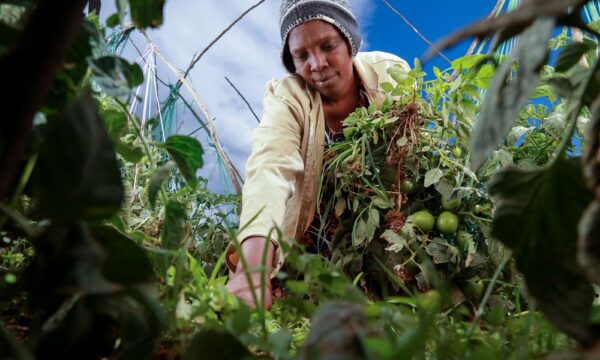
The UK is hosting the 26th UN Climate Change Conference of the Parties (COP26) in Glasgow from 31 October to 12 November 2021. This is the first in a series of four blogs by Jonathan Casey, Climate Change Manager at CABI, in support of CABI’s involvement at the event.
Key messages:
• Creating stronger links between invasive species management and climate change adaptation policies can lead to improved outcomes for climate resilience and agricultural productivity
• Focusing on sub-national governance levels could lead to more relevant plans, stronger uptake of practices, and clear benefits to local communities
• Integrated policy support for improved women’s empowerment and economic opportunities for youth can be underpinned by strong invasive species management policies and practices
Pest and disease threats are increasing and spreading to new areas as climate change creates new niches for them to thrive and attack crops and livestock (FAO/IPPC, 2021). Invasive species management policies and practices can be effective strategies for controlling these threats and for minimizing losses. But they can also be the foundations of improved climate change resilience and can support adaptation in the agriculture sector.
Invasive species management
Comparatively, little attention and funding has been given to managing invasive species, despite their impacts costing farmers and African economies an estimated US$65.6 billion per year (Eschen, et al., 2021). Invasive species also reduce biodiversity. Biodiversity loss is one of the main impacts of climate change, and biodiversity loss contributes to greater greenhouse gas emissions and vulnerability to the impacts of climate change in agriculture (IPBES, 2019). There are now opportunities for increased integration of policies, practices, and strategies to deal with the dual threats of climate change and increasing pest and disease risks (Casey, 2021).
In Pakistan, CABI has been supporting the Ministry of Climate Change to develop its new invasive species management plan and to identify opportunities for synergies with existing climate change policies and commitments. National governments can seek efficiencies, cost savings, and improved outcomes by prioritizing areas of commonality between invasive species management and climate adaptation policies. These involve interlinkages in natural resource management including spatial planning, land management, conservation, and sustainable agro-industry small and medium-size enterprise market development.
Policies and practices
Integrated policy support for improved women’s empowerment and economic opportunities for youth can also be underpinned by strong invasive species management policies and practices, as a common area of work to empower women in agriculture and forestry and to enhance economic empowerment for youth through associated business opportunities.
As countries look to develop new biodiversity action plans and to submit enhanced Nationally Determined Contributions to meet Paris Agreement goals, there is an opportunity for more coordinated policy approaches and implementation strategies for these two intrinsically linked areas of natural resources management. Nature-positive agriculture, building on invasive species management approaches, can address these challenges when developed and implemented at sub-national levels.
Additional information
Main image: safer and more environmentally-friendly ways of protecting cotton crops from pests and diseases is part and parcel of CABI’s support to the Pakistan Ministry of Climate Change to develop its new invasive species management plan (Credit: Asim Hafeez for CABI).
United Nations Climate Change Conference 2021 (COP26)
The COP26 summit is bringing parties together to accelerate action towards the goals of the Paris Agreement and the UN Framework Convention on Climate Change. Find out more from the websitehttps://ukcop26.org/
Climate change and biodiversity
To find out more and discuss opportunities to work together please visit https://www.cabi.org/about-cabi/climate-change/ and/or email us: enquiries@cabi.org
News story
See also the news story ‘CABI’s climate change commitment highlighted at COP26.’
Climate Change Briefings
This blog relates to the CABI Climate Change Briefing ‘Invasive species management: a policy tool for integrated climate adaptation.’
Three other briefings have also been published. These include ‘Pest risk early warning systems in a changing climate,’ as well as ‘Climate-smart pest management for nature-positive agriculture,’ and ‘Invasive species management: a nature-based solution for climate and environment.’
Related News & Blogs
Biodiversity loss: How can we reclaim our landscapes from threats to biodiversity?
On 22nd May, we mark the International Day for Biological Diversity. In this article, CABI’s Global Director for Invasive Species Dr Hariet Hinz looks at how we can reclaim our landscapes from threats to biodiversity. Biodiversity loss is proceeding at…
22 May 2025




